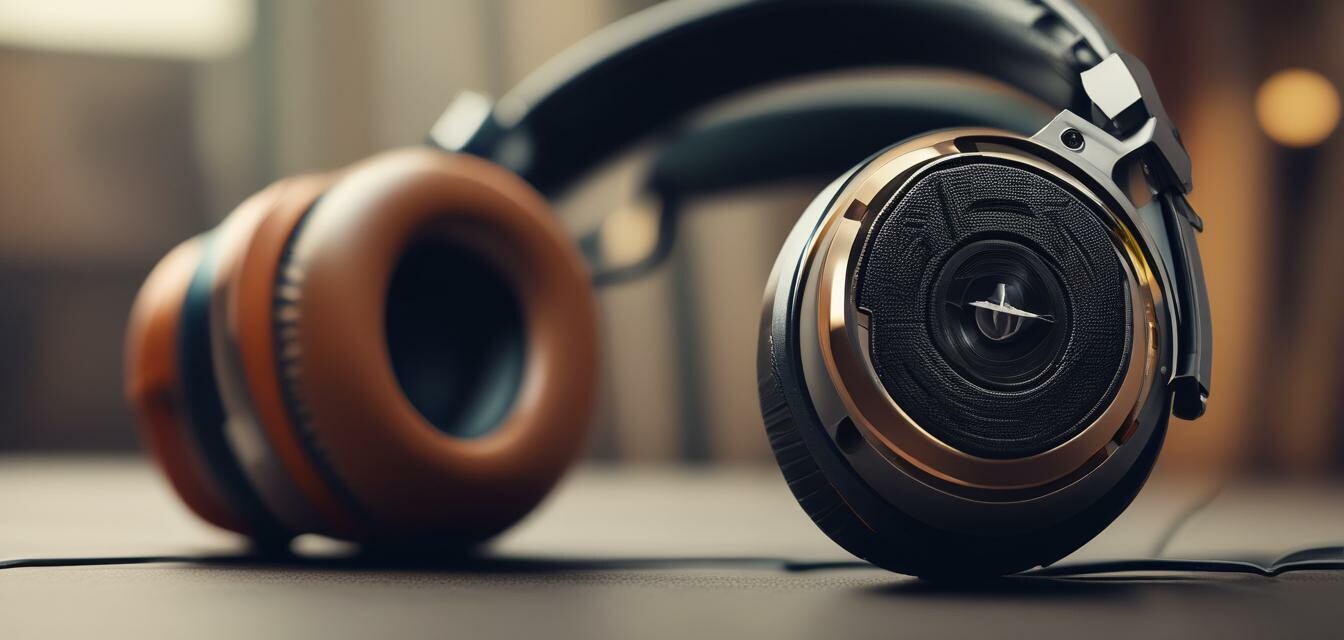
Ultimate Guide to Choosing Audiophile Headphones
Key Takeaways
- Understand the different types of audiophile headphones: in-ear, over-ear, and noise-cancelling.
- Look for key features like sound quality, comfort, and build quality.
- Consider your listening preferences and environments to find the perfect fit.
- Explore various budget ranges to determine what suits your needs best.
Choosing the right pair of audiophile headphones can feel overwhelming with the vast array available in today's market. Whether you are a seasoned music lover or just starting to appreciate quality sound, understanding what to look for can significantly enhance your listening experience. This guide will walk you through essential features, types, and tips to find the perfect pair.
Types of audiophile headphones
Audiophile headphones come in various styles, each with unique characteristics. Here are the most common types:
| Type | Features | Best For |
|---|---|---|
| In-Ear Monitors | Compact, portable, excellent sound isolation | On-the-go listening, travel |
| Noise-Cancelling Headphones | Active noise cancellation, comfortable fit | Public transport, noisy environments |
| Over-Ear Headphones | Superior sound quality, comfort, large drivers | Home listening, studio work |
| Studio Headphones | Flat frequency response, durable design | Mixing, mastering music |
| Wireless Headphones | Bluetooth connectivity, freedom of movement | Active lifestyles, convenience |
Key features to consider
When searching for audiophile headphones, several key features can help you narrow down your choices:
- Sound Quality: Look for headphones with balanced sound across lows, mids, and highs.
- Comfort: Consider padded ear cups and adjustable headbands for extended listening sessions.
- Build Quality: Durable materials can ensure longevity, especially for frequent travelers.
- Impedance: Choose headphones with impedance suited to your audio source for optimal performance.
- Frequency Response: A wider range captures more audio detail, but preferences vary by listener.
How to choose the right headphones for your needs
Finding the headphones that fit your lifestyle and listening habits can make a significant difference. Consider these factors:
- Assess Your Listening Environment: If you're often in noisy places, noise-cancelling headphones may be ideal.
- Evaluate Your Music Preferences: Different genres may benefit from specific sound profiles; find headphones that match your favorite styles.
- Test Before You Buy: Try multiple pairs if possible, as comfort and sound perceptions can differ between models.
- Set a Budget: Audiophile headphones come in various price ranges; define what you're willing to spend before you start shopping.
Comparing popular headphone models
While this guide will not focus on specific brands or models, comparing different products within the same category can provide clarity in your selection process. Below is a comparison of common features across different headphone types:
| Type | Sound Quality | Comfort Level | Price Range |
|---|---|---|---|
| In-Ear Monitors | High | Medium | Affordable to Mid-Range |
| Noise-Cancelling Headphones | Very High | High | Mid-Range to High-End |
| Over-Ear Headphones | Exceptional | Very High | Mid-Range to High-End |
| Studio Headphones | Flat Response | High | Mid-Range to High-End |
| Wireless Headphones | High | High | Affordable to High-End |
Conclusion
Choosing audiophile headphones is about finding the right balance between sound quality, comfort, and functionality. By understanding the different types and key features, you can make an informed choice that enhances your listening experience. For more information on specific types of headphones, feel free to explore our related articles on In-Ear Monitors, Noise-Cancelling Headphones, Over-Ear Headphones, Studio Headphones, and Wireless Headphones.
Beginner tips for buying headphones
- Read reviews from other audiophiles to get insights on sound performance.
- Don't rush your decision; take the time to consider various options.
- Check return policies; it’s important to be able to return headphones if they don't meet your expectations.